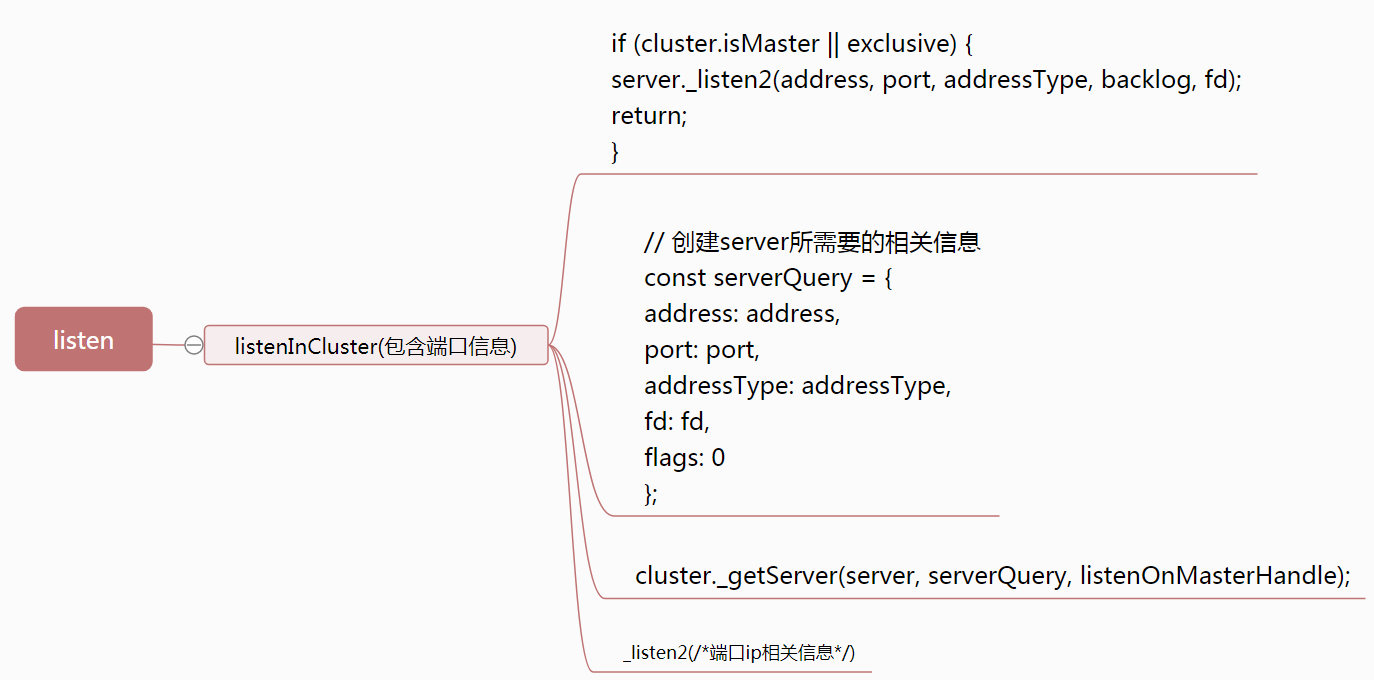In preparing for a post-hydrocarbon future, Saudi Arabia and the UAE are simultaneously seeking to develop some of the same sectors, notably tourism, financial services, petrochemicals, and technology. Of the two countries, the UAE made the earlier start and enjoys first-mover advantage in transforming itself into a business, trade, and tourism hub. Of late, however, Saudi Arabia has mounted a challenge, moving to expand its tourism sector and offering a larger market and loosening lifestyle restrictions to attract investors, international companies, and foreign talent.

The Emirates have implemented counter-measures, such as issuing new visa rules and switching to a Monday-Friday work week. Some investors and their shareholders, however, remain wary of the prince. The campaign, described by critics as a shakedown, largely took place outside of the courts and public view. Since the discovery of oil, the GCC region has undergone a profound transformation and is now home to some of the fastest growing economies in the world. Today, the governments of the GCC countries undertake successful efforts to diversify their economies away from dependence on hydrocarbon industries. These diversified growth sectors, such as finance, logistics, aviation, communications, healthcare and tourism provide abundant business opportunities.
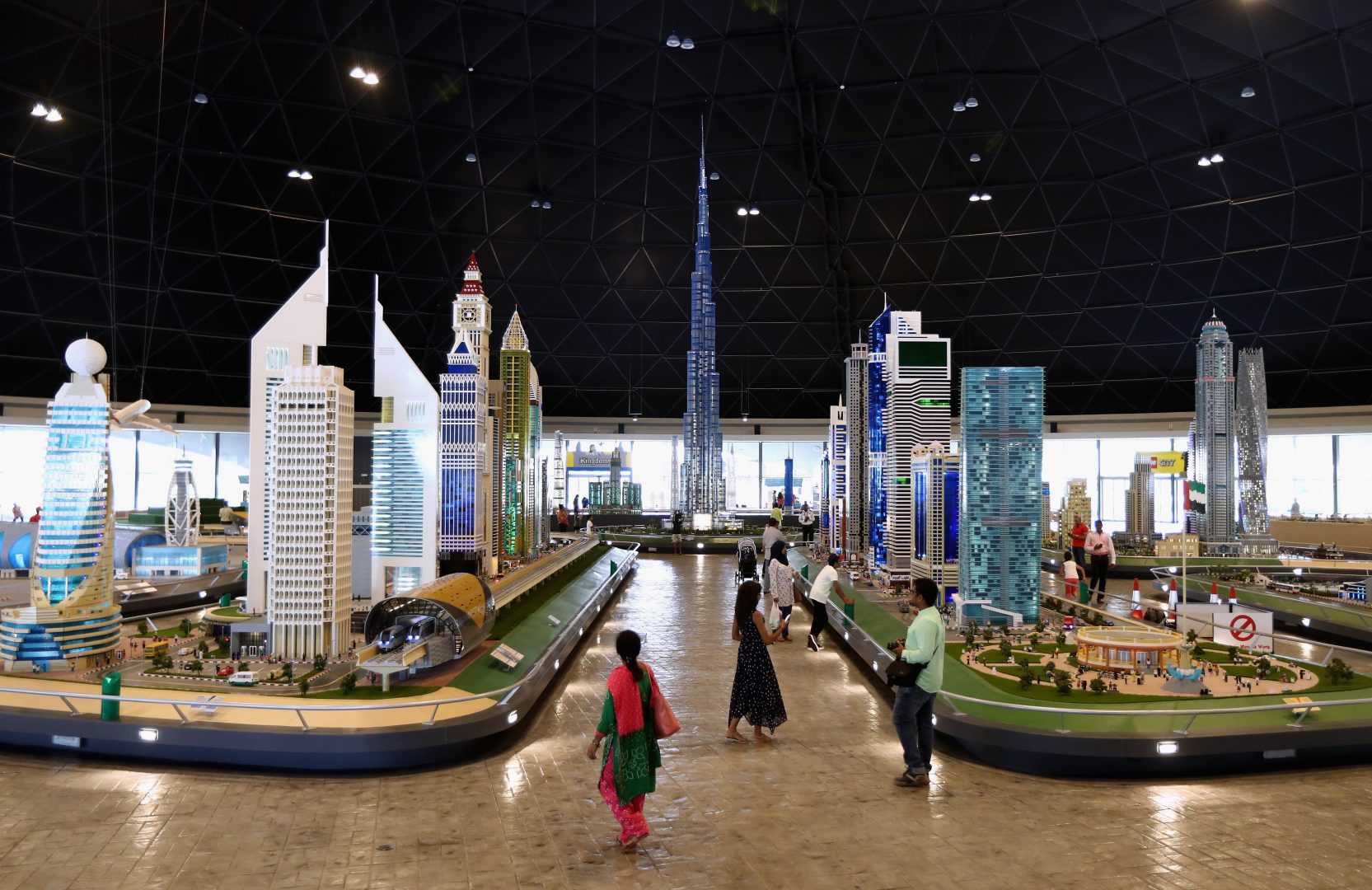
Liberal climates towards foreign cooperation, investment and modernization result in extensive diplomatic and commercial relations with other countries. Dubai is working to retain its place as the region's premier tourism, financial and real estate hub. At the departure hall of Riyadh's international airport, a large advertisement hangs from the ceiling, featuring an investment opportunity in a new beachfront development in Dubai. To keep foreigners invested longer, the UAE is also easing visa rules for residents and investors. Travelmath provides an online time zone converter for places all over the world.

You can enter airports, cities, states, countries, or zip codes to find the time difference between any two locations. The calculator will automatically adjust for daylight saving time in the summer. You can use it as a meeting planner or a scheduler to find the best time to make international phone calls. World time zones have a positive or negative offset computed from Coordinated Universal Time , or Greenwich Mean Time .

UTC has uniform seconds defined by International Atomic Time , with leap seconds announced at irregular intervals to compensate for the Earth's slowing rotation. The tz database or zoneinfo database uses the closest city, rather than the more common Eastern, Central, Mountain or Pacific time zones in the United States. Countries often change their daylight saving rules, so please help us stay current by letting us know if you find any pages that need updates. In an effort to diversity its oil economy along the same pattern as the United Arab Emirates, Saudi Arabia has been developing new economic sectors at home instead of investing abroad. Yet to become a regional economic hub, Riyadh would have to strip away some firms from Dubai, as most of the large international firms operating in the Gulf region are already headquartered in the UAE's largest city.

But conflicting interests have cropped up in recent months that preceded the OPEC rift. In February, Saudi Arabia announced that its government would cease doing business with any international companies whose regional headquarters were not based within the kingdom by 2024. The move was widely seen as targeting Dubai, the Middle East's current headquarters hub.

This is also widely seen as an attempt by the UAE to burnish its international image as it competes with Saudi Arabia to attract foreign investors and remain a leading international financial hub for the region. Last year, Saudi Arabia warned multinational companies that they could lose lucrative government contracts if they didn't relocate to Riyadh. To date, Saudi Arabia continues to play an important role in the region. In fact, in addition to its political influence and its military power, Saudi Arabia has a strong economic leverage on its neighbors. The country has an oil-based economy; it is considered the largest exporter of petroleum in the world; and it owns around 16% of the global petroleum reserves.

Petroleum is the core of Saudi's economy and accounts for about 87% of all budget revenues (and 90% of export earnings). Saudi Arabia has been pressuring international companies to put their Middle East hubs in the kingdom by the start of 2024 or risk losing out on business in the region's largest economy. Dubai Media City has housed some of the region's largest news companies for more than a decade. While the emirate of Dubai was only recently founded in 1971, the area has a rich history that dates back thousands of years. Trade among neighbors in Afghanistan, India, and the Levant dominated Dubai's early economy.

Dubai's early residents were known as the Magan people, who mined and sold copper, bronze, and natural stone for building projects. They were skilled shipbuilders and seamen, and their descendants used the emirate's proximity to the Persian Gulf to start a pearl export industry that lasted well into the 20th century. Today, the emirate prospers from its oil, retail, finance, and tourism industries. Recently, a campaign was started by Riyadh as part of an initiative named Programme HQ, under which blue-chip companies and multinationals from Google to Siemens are being offered incentives to relocate their regional headquarters from Dubai to Riyadh. Ostensibly, this is to lure the senior leadership of top foreign companies to Riyadh to make it look like a larger market than Dubai, as well as to speed up foreign investment. Currently, the volume of container traffic in the region handled by ports in the UAE is nearly twice that of Saudi Arabia — a dominance the Emirates is unlikely to relinquish any time soon.
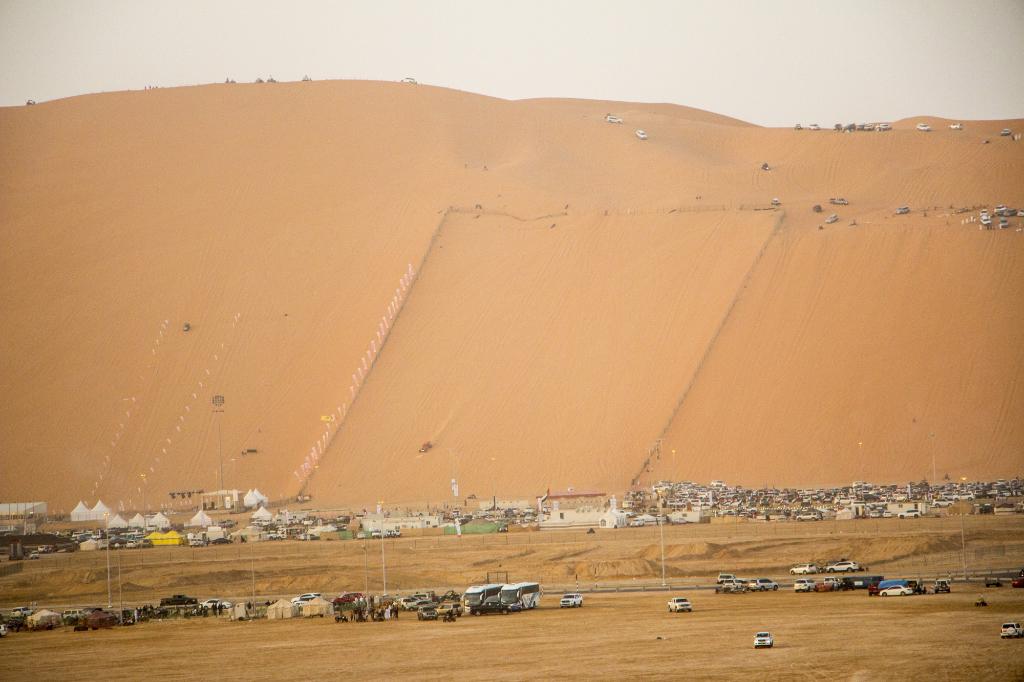
Is Saudi Arabia And Dubai Same Country Nevertheless, as Saudi Arabia presses forward with its maritime agenda the UAE's advantage in terms of capacities, market shares, international investments, and trade connections can be expected to narrow. And Chinese commercial engagement is likely to play a key role in how this race unfolds. The current pattern of Saudi-Emirati relations — marked by separate though not necessarily conflicting diplomacy-first approaches to regional relations — also consists of heightened economic competition.

The Covid-19 pandemic, combined with reduced global oil prices, highlighted the perils of over-reliance on oil for growth and intensified pressure on Gulf governments to accelerate economic diversification. Saudi Arabia, the UAE, and the other Gulf states are scrambling to lay the foundation for a post-hydrocarbon future. Emirates is also known for the city of Dubai, the capital of the emirate Dubai and the country's most populous city. Like Oman and Qatar, Kuwait has opted to hedge its relationships with regional and international partners. The United Arab Emirates is slightly smaller in area than Portugal.

It is bordered by Saudi Arabia to the west and south and by Oman to the east and northeast. The precise borders of the country have remained a matter of dispute. Despite a 1974 secret agreement between the United Arab Emirates and Saudi Arabia said to have resolved their three border disputes, the agreement's legal standing is unclear. The United Arab Emirates claims a strip of coastline that borders Qatar to the northwest, which Saudi Arabia claims was ceded to it in the 1974 agreement.

It likewise disputes Saudi claims over the Shaybah oil field to the south, while Saudi Arabia has at times challenged the emirates' claim on oases around the city of Al-Ain. Since the early 1990s, moreover, the emirates have been in a dispute with Iran over the ownership of three islands—Abū Mūsā and Greater and Lesser Tunb (Ṭunb al-Kubrā and Ṭunb al-Ṣughrā). The two countries are also known for being close allies in terms of foreign policy and geopolitical interests, collaborating closely during the 2017–18 Qatar diplomatic crisis and backing anti-Muslim Brotherhood governments in Libya, Tunisia and Egypt. Saudi Arabia is famous for its well-known city Jeddah and is a world-famous tourist attraction. Saudi is one of the strongest economic countries among its neighbours.

The country is famous for oil-based economy and they are the largest exporter of petroleum. Well, one can say that petroleum is one of the products that counts in the economy of the country because it accounts for 87% of all budget revenues with export earnings of 90%. From the start of 2024, the Saudi government and state-backed institutions will stop signing contracts with foreign companies that base their Middle East headquarters in any other country in the region, according to a statement from the official news agency in February. The move is intended to limit "economic leakage" and boost job creation, it said.

Bloomberg | Quint is a multiplatform, Indian business and financial news company. We combine Bloomberg's global leadership in business and financial news and data, with Quintillion Media's deep expertise in the Indian market and digital news delivery, to provide high quality business news, insights and trends for India's sophisticated audiences. Alternatively, some companies may make a show of relocating their headquarters, but only to comply with the minimum requirements. This will, in other words, keep those businesses' true influence, intelligentsia and capital at bay.

Companies will also be wary of paying the higher salaries that expats would demand to live in Saudi Arabia compared with more attractive regional locations such as Dubai, which boast a better quality of life. Economic powerhouse of the Middle East, as reflected by the fact that it attracts more foreign investment than any other Arab country . In fact, foreign investors made the UAE what it is today, a global hub. Habib Al Mulla, the executive chairman of a Dubai law firm, who has previously held Emirati government positions and helped draft financial legislation, says becoming more socially liberal is a necessary part of being an international economic hub. Intensifying Saudi-Emirati competition in the maritime transport and logistics sector is part of the larger intra-Gulf jockeying for position to capture the increasing interregional cargo trade volumes flowing westward from Asia.

Saudi Arabia and the UAE have sought to leverage China's deepening economic engagement in the Gulf and Red Sea arenas for the purpose of advancing their own economic diversification and geopolitical aims. Thus, Saudi and Emirati regional diplomacy, while headed in the same general direction nonetheless reveals a certain loosening of the tight policy coordination of just a few years ago. It also suggests a desire on the part of Abu Dhabi to maintain a degree of independence from Riyadh in managing complex regional relationships. This is not surprising, as the UAE has never been a mere appendage of Saudi Arabia. Nor, as the UAE has become a more capable, active, and ambitious actor, has it warmed to the idea of serving as its larger neighbor's junior partner. Thus, while the UAE's military adventurism has been scaled back and diplomacy prioritized, the assertive and self-reliant features of its foreign policy remain intact.

As a result, a "new normal" in the Saudi-Emirati relationship has taken shape, one where their geopolitical differences and aspirations for regional leadership and influence have come to the fore and where the UAE appears determined to build its own brand. Saudi Arabian news channels are starting to transfer operations out of Dubai amid a push by the country's crown prince to get multinational companies to relocate their headquarters to the kingdom. The mood at the investment forum in Riyadh largely reflected that. The three-day forum drew more than 1,000 delegates, including several American billionaires and top U.S. hedge-fund managers. This came just three years after these same business titans canceled their attendance following the international outcry over the killing of Saudi critic Jamal Khashoggi by Saudi agents who worked for the crown prince. Creating jobs and diversifying the economy sit at the heart of Prince Mohammed's Vision 2030 blueprint for transforming the country.

He is to inherit a nation where over a third of the population is under 14, and more than 60% are under 35. No longer can the public sector absorb or afford the wages of most Saudis. Lebanon lies on the eastern coast of the Mediterranean sea, just north of Israel, south of the Syrian Desert, and west of Syria. A mountainous country, the region that would come to be known as Lebanon has been inhabited for more than 7000 years, and its recorded history goes back to 3,000 BC.

Lebanon was the home of the Phoenicians, a group of seagoing traders famous at the time for trading in Tyrean purple dye and known today for creating the earliest confirmed alphabet, which evolved into/inspired the alphabets of many European alphabets still in use today . Nevertheless, US Secretary of Defence James Mattis's March 2018 visit may indicate that Oman has revived its role in regional mediation. The 'tax free zones' of the UAE have attracted a diverse portfolio of successful international service businesses which naturally attracts expatriate employees and the country is a 'go to' holiday destination which receives regular travel and tourism awards.

Crown Prince Mohammed bin Salman has pushed an $800 billion strategy to double the size of the Saudi capital and turn it into a global hub, challenging Dubai's status as the region's premier business center. While earlier steps included incentives for companies to move, the announcement in February contained an implicit threat of losing out on billions of dollars of deals unless they relocate. UAE territories such as Abu Dhabi, Fujairah, and Sharjah surround Dubai on nearly all sides.

The emirate of Dubai and its capital city, which bears the same name, are known for extravagance and wealth. This emirate's citizens travel extensively to regional hot spots in places such as Egypt, India, and Sri Lanka. Dubai is one of seven emirates that make up the United Arab Emirates , which is a country on the southeastern part of the Arabian Peninsula. Most of society cannot agree and relegate the emirate to the region that's known as the Middle East. Geographers still debate about which continent it belongs.Today Dubai and the country it is a part of, United Arab Emirates, are considered to be part of the continent of Asia.

For example, early in 2021 it launched 'Project HQ', aimed at pushing foreign companies to establish a permanent, in-country presence in Saudi Arabia. More specifically, it stipulates that foreign companies must move their headquarters to the kingdom by 2024 if they want to participate in Saudi government investment opportunities. The country knows it suffers from a perception issue, to put it very lightly. This is why, in recent years, social media feeds across 'the West' have been bombarded by slick videos marketing Saudi Arabia's natural beauty and tourism offering, as part of its wider Vision 2030 plan to diversify and internationalise its oil-dependent economy. First, having a population of 34 million — three times larger than the UAE's — the kingdom remains the largest market in the Gulf region.

Abu Dhabi's main drawback could be its limited size and capacity, even though it is efficient and innovative. The UAE is focused on securing its first-mover advantage as part of the MSR. But Riyadh is determined to capitalize on the kingdom being the only country with coastal access to both the Persian Gulf and the Red Sea. Although energy continues to be the core of Sino-Saudi cooperation, efforts to harmonize "Vision 2030" and the MSR and thus boost the kingdom's prospects for becoming a global logistics hub are making headway. In March 2017, Saudi Aramco awarded China Harbour Engineering Company , which has implemented over two dozen projects in the kingdom, a contract for the construction of a commercial port at Jazan Economic City. Last January, COSCO Shipping Ports acquired a 20% stake in the Red Sea Gateway Terminal at the Jeddah Islamic Port.

The next month, Hutchison Ports signed an agreement to invest in and operate Saudi Arabia's multipurpose Jazan City for Primary and Downstream Industries port and industrial park on the Red Sea. Saudi Ports Authority recently inaugurated the Gulf China Service , a weekly direct service between King Abdulaziz Port in Dammam and Ningbo, China. They sought to bolster fellow monarchies in Jordan and Bahrain with economic aid and, in the latter case, troops.
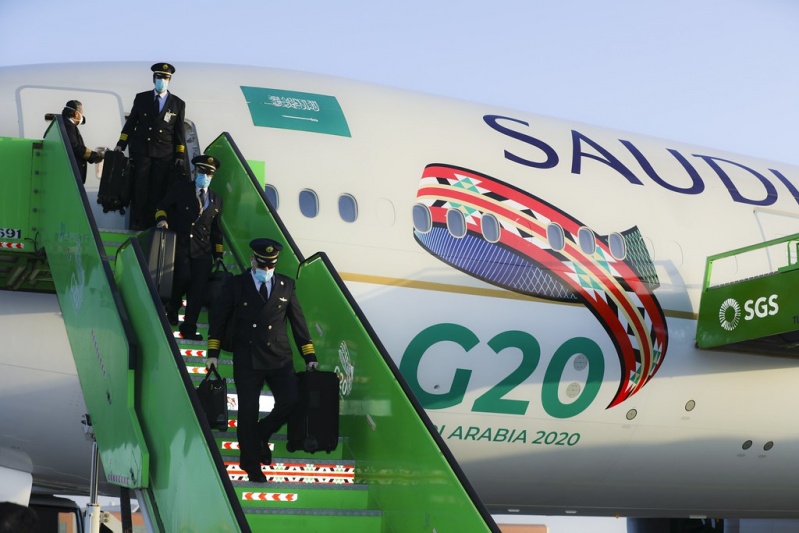
The Kingdom of Saudi Arabia and the United Arab Emirates are the dominant economic players in the Middle East and North Africa , accounting for more than half the region's imports and exports. Over the past decade, with the traditional power centers of Egypt, Iraq, and Syria weakened, these same two countries have become more assertive and influential actors in regional and global affairs. Importantly, they also have enjoyed a period of unprecedented close cooperation. The remainder are mostly foreign workers and their dependents, with South Asians constituting the largest of these groups. Arabs from countries other than the United Arab Emirates and Iranians account for another significant portion. Southeast Asians, including many Filipinos, have immigrated in increasing numbers to work in various capacities.

Saudi Arabia and United Arab Emirates are two Muslim countries and the two main economic powers of the Arab region. Both countries have oil-based economies – although Saudi Arabia is the largest exporter of petroleum in the world while UAE is trying to reduce its dependency on oil exports – and both are important economic partners of Western countries. Sebastian Shehadi is political editor and senior editor at Investment Monitor and a contributing writer for the New Statesman. He joined from the Financial Times, where he was an editor at fDi Magazine.
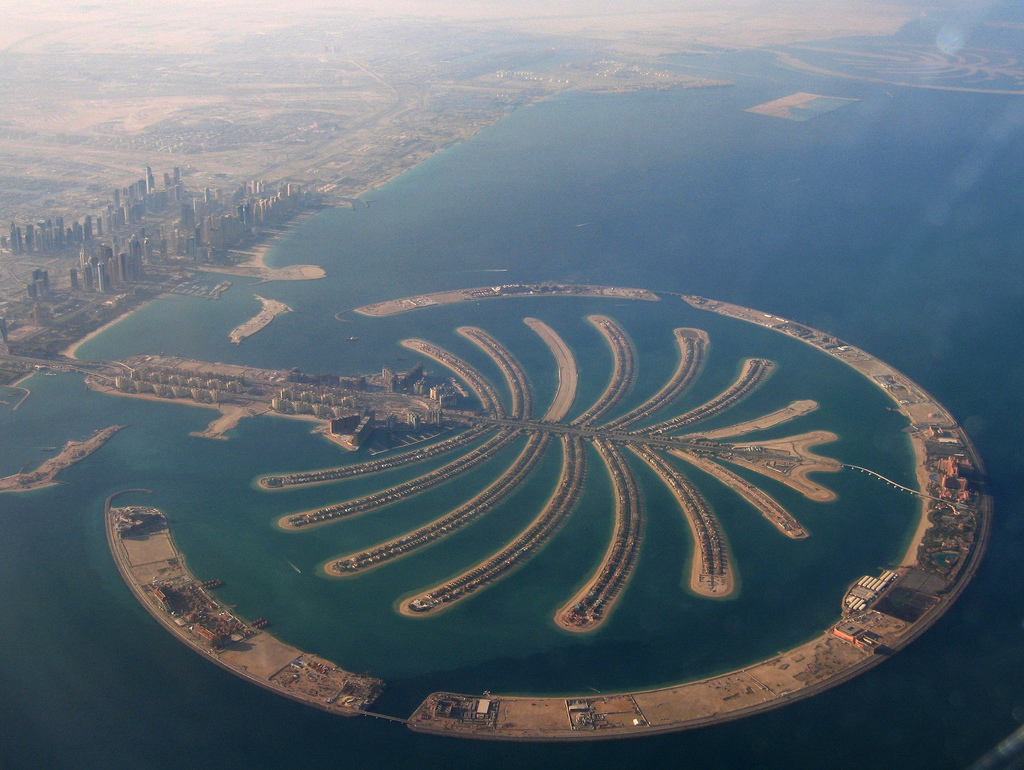
He takes special interest in tourism, tier-two cities, green energy, real estate and emerging markets, and has written for the FT, the BBC, Sifted and Middle East Eye. Prior to his career in journalism, Sebastian served as a political risk analyst at Citibank. DP World is a multinational logistics company based in Dubai, the capital of the United Arab Emirates, founded in 2005. It operates ports around the world, from Hong Kong to Buenos Aires, handling around 10 per cent of global shipping container traffic, more than 70 million containers annually. Perceived as the destination of choice even for Saudi businesses headed abroad, Dubai is the most thriving financial and commercial center in the Gulf Cooperation Council region. Yet a turning point in Saudi Arabia's approach came when Crown Prince Mohammed bin Salman launched the futuristic city NEOM, which is set to cost an estimated $500 billion.

The biggest drivers of the economy are trade, real estate, and financial services. Johnson is tentatively scheduled to meet the Crown Prince of Abu Dhabi, Mohammed bin Zayed, and energy officials in Abu Dhabi on Wednesday. He is meant to travel to Riyadh later the same day and meet Saudi Crown Prince Mohammed bin Salman, two of the people said, declining to be named as the information is not public.

Khashoggi's murder tarnished the reformist image that the crown prince had been cultivating in the West, which largely condemned him. MbS has wanted to return the focus to social and economic reforms that he has pushed through to open up Saudi Arabia and diversify its oil-dependent economy. But Saudi Arabia, in line with "Vision 2030," is also making a bid to become a leading regional and global logistics hub. Riyadh has launched an ambitious National Logistics and Transport Strategy. Plans are underway to turn King Abdulaziz Port Dammam into a mega-container hub. Maersk recently reached an agreement with Saudi Arabia Port Authority to establish a new, integrated logistics port in Jeddah Islamic Port.



